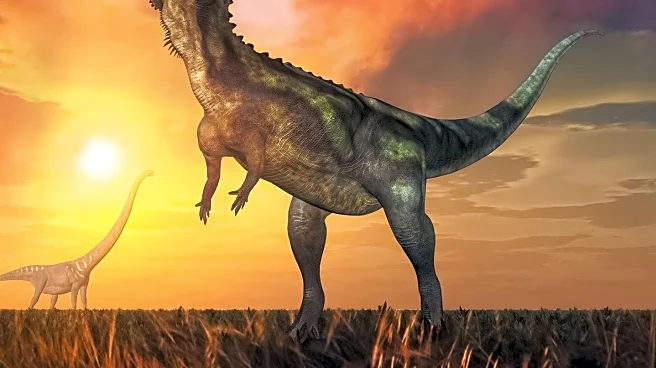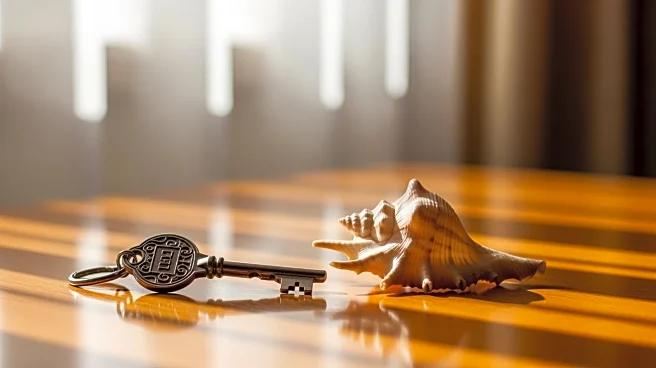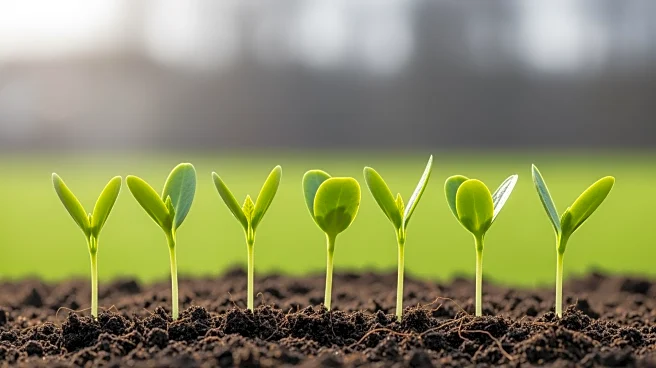What's Happening?
Matt Bigland, frontman of the band Dinosaur Pile-Up, shared his journey through a life-changing illness that began in 2019. Initially diagnosed with Crohn's disease, later corrected to ulcerative colitis, Bigland faced severe health challenges, including internal bleeding and rapid weight changes. His experience led to a profound shift in perspective, emphasizing the importance of time with loved ones over material success. Despite contemplating quitting music, Bigland found motivation in his band's community and his relationship with Brazilian punk singer Karen Dio, whom he married in 2022. Dinosaur Pile-Up is set to release a new album, 'I've Felt Better,' inspired by Bigland's experiences.
Why It's Important?
Bigland's story highlights the intersection of personal health and professional life, illustrating how chronic illness can impact creative pursuits. His resilience and decision to continue making music despite challenges underscore the therapeutic role of art in coping with adversity. The narrative also sheds light on the pressures faced by musicians in the industry, including the impact of toxic relationships and the struggle for recognition. Bigland's emphasis on community and personal connections reflects broader societal values, encouraging a reevaluation of priorities in the face of health crises.
What's Next?
As Dinosaur Pile-Up prepares for their most intensive touring period since Bigland's illness, the band will navigate the challenges of maintaining health while performing. Bigland's story may inspire other artists facing similar struggles to prioritize well-being and seek support from their communities. The release of 'I've Felt Better' is likely to resonate with fans, offering a blend of introspective and energetic tracks that reflect Bigland's journey. The album's success could lead to further opportunities for the band, reinforcing their place in the alt-rock scene.
Beyond the Headlines
Bigland's experience raises questions about the music industry's support for artists dealing with health issues. It highlights the need for greater awareness and resources to assist musicians in managing chronic conditions while pursuing their careers. The story also touches on the cultural significance of resilience and the role of personal narratives in shaping artistic expression. Bigland's journey serves as a reminder of the power of music to connect and heal, offering hope and inspiration to those facing similar challenges.









